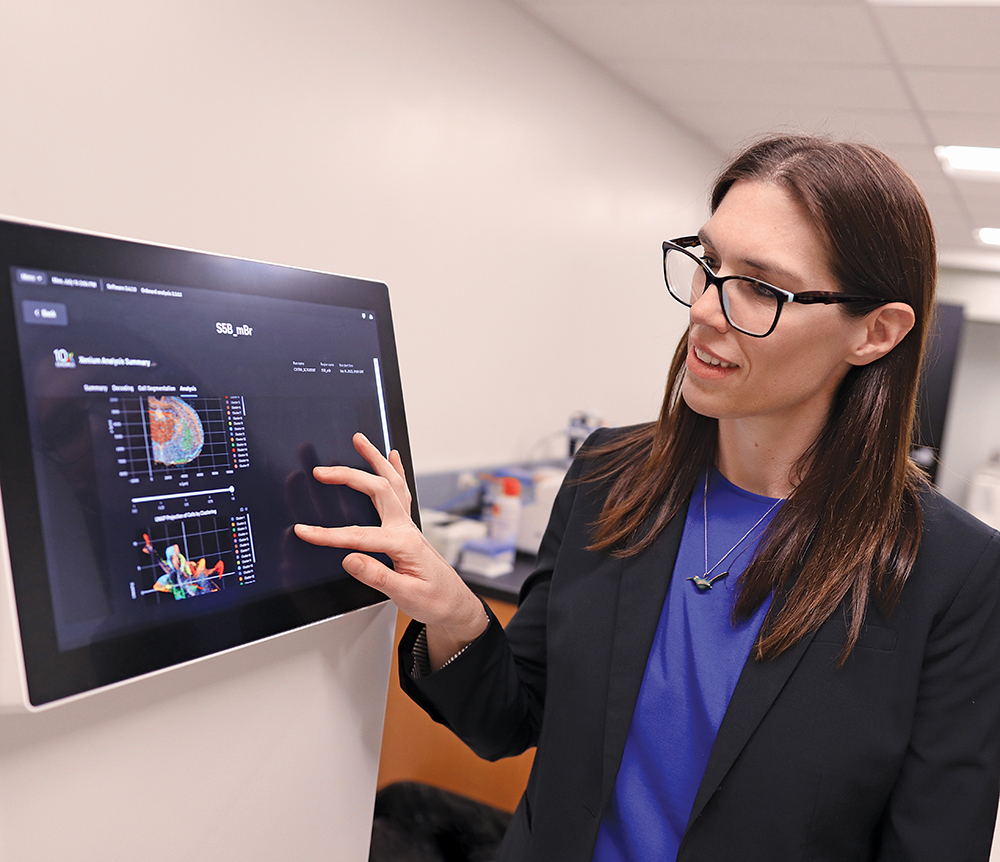Imagine being told that your child needs cancer treatment with a chemotherapy drug called cisplatin, and that, unfortunately, the drug can cause a severe side effect: permanent hearing loss.
Now imagine that a blood test could, by detecting certain genetic variants, predict whether your child will experience this damage from the drug.
In a recent breakthrough published in the journal Human Genomics, Dr. Britt Drögemöller, assistant professor of biochemistry and medical genetics and Canada Research Chair in pharmacogenomics and precision medicine, has taken the first steps toward developing that test.
Her lab team is the first in the world to harness two kinds of unique large-scale data to develop a polygenic risk score for cisplatin-induced hearing loss.
“We designed a predictive model based on human genetic variants associated with hearing loss,” she says. “We also generated the first data measuring how treatment with cisplatin changes the activity of genes in tens of thousands of specific cells in the inner ears of mice.”

Currently, many cancer patients have to take cisplatin because it’s highly effective, the geneticist says. But a hearing-protectant drug can be added for some patients.
“The polygenic score will be an additional piece of the puzzle that can be used to guide treatment decisions.”
Drögemöller was born and raised in South Africa. After earning her PhD at Stellenbosch University, she came to Canada in 2014 for a postdoctoral fellowship at the University of British Columbia.
In 2020, she and her husband, fellow South African geneticist Dr. Galen Wright, were both hired as UM Canada Research Chairs. Drögemöller is also a researcher with the Children’s Hospital Research Institute of Manitoba and the CancerCare Manitoba Research Institute.
She arrived at UM with a broad aim to identify genetic variants that contribute to adverse drug reactions. But she has now honed in on the genetics of hearing loss – both drug-induced and age-related.
One of her recent findings is that losing your hearing from exposure to loud noise involves very different genetic pathways from losing it because of age-related deterioration of inner-ear cells. And it’s the latter that overlaps with genes that are known to be involved in dementia.
“Is there a common genetic pathway that’s dysregulated in both hearing loss and dementia? We’re working on that now.”
Drögemöller’s lab is analyzing genomic, hearing and dementia data from about 27,000 participants in the Canadian Longitudinal Study on Aging. She focuses her work on older adults and children, she says, because they have traditionally been excluded from genetic research.
The scientist and her husband – whose genetic expertise is in neurological disorders – recently obtained funding with pharmacy prof Dr. Kaarina Kowalec [B.Sc. (Hons.)/08, M.Sc./11] for a suite of cutting-edge lab equipment that generates spatial transcriptomics data.
“It’s the first of its kind in Manitoba,” Drögemöller says. “It not only allows you to look at the expression of genes in each cell of a tissue – such as inner-ear tissue – but it also tells you exactly where in the tissue that cell is located.
“If there’s something wrong in the cell, how does that affect the cell next to it? It gives you a better idea of how cells are communicating with each other. So this is super exciting.”
BY ALISON MAYES
